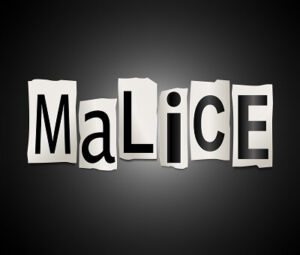
Journalists’ Ethical Obligations
The Media Entertainment and Arts Alliance (MEAA) is a union and industry advocate for members of the sectors in its title. It produces the “MEAA Journalist Code of Ethics”. Clause 3 of that code provides the purpose as follows:
“Aim to attribute information to its source. Where a source seeks anonymity, do not agree without first considering the source’s motives and any alternative attributable source. Where confidences are accepted, respect them in all circumstances.”
The peak industry body recognises that journalists have an ethical obligation not to reveal their sources.
Cases Where Journalists Have Been Jailed for Not Revealing Their Sources
The following cases are those where journalists have not revealed their sources in defamation matters and have been sent to jail for it. Evidently, it is common for journalists to be held in contempt for not revealing a source.
In R v Barass1, Perth journalist Tony Barrass was jailed and fined $10,000 in 1989 for refusing to tell a Perth magistrate the name of the person who had given him printouts of two tax files. He had been subpoenaed to give evidence in a trial involving allegations of tax office clerks selling confidential tax files2.
In R v Budd3, Brisbane journalist Joe Budd was jailed in 1992 for failing to reveal his source in a defamation trial before the Supreme Court of Queensland4.
In Nicholls v DPP5, South Australian journalist Chris Nicholls was jailed for three months for failing to reveal his source. Nicholls was actually on trial for criminal charges of impersonating and forgery. It was alleged that he had impersonated the de facto husband of the State Tourism Minister in order to obtain bank statements and documents whilst researching and investigating improper dealings by members of Parliament in relation to gaming machines. Nicholls maintained that someone else had done the impersonating and forgery but refused to state the name of that person. He was acquitted of the forgery and impersonating charges but charged and convicted with contempt for refusing to name his source.
In Independent Commisson Against Corruption v Cornwall6, New South Wales journalist Deborah Cornwall was convicted of contempt and granted a two-month suspended sentence and ordered to complete 90 hours of community service at Redfern Legal Centre for failing to reveal a source. While giving evidence to the New South Wales Independent Commission Against Corruption (ICAC) she stated that an unnamed police officer had told her that underworld figure Neddy Smith was a police informer. She refused to reveal her source of that information.
The Newspaper Rule
Australian Courts have recognised “The Newspaper Rule” which provides that journalists need not reveal the sources of their information in defamation cases unless disclosure is necessary ‘in the interests of justice’7. The basis of this rule is to ensure the protection of sources from unnecessary disclosure of their identity8.
In John Fairfax & Sons Ltd-v-Cojuangco9, a journalist published an article and was required by the Court to provide the relevant notes which would be sufficient in identifying his confidential source for the purpose of commencing legal proceedings. In this case the Court held that the identity of the source of the information was not required as the newspaper rule did not apply in the circumstances.
Shield Laws and What They Provide
Following pressure by media organisations and journalists, ‘shield laws’ were introduced into Australia in order to protect journalists from having to reveal their sources. ‘Shield laws’ in Australia reflect the common law “Newspaper Rule”. For example, Section 126K of the Evidence Act 1995 (Cth) provides that a journalist does not need to reveal his or her source unless the public interest in disclosure outweighs any adverse effect (a) on the informant or any other person and (b) the public interest in communication of facts by the media and the media’s ability to source information10.
‘Shield laws’ for journalists exist in every State and Territory in Australia except Queensland. However, the provision in the Evidence Act 2001 (Tas) does not use the word ‘journalist’ in its general provision about confidential sources of information.
The ‘shield laws’ throughout Australia, as legislation, override any common law obligation of confidentiality which a journalist may consider him or herself to be bound by.
How the Situation Interacts with Defamation Cases
One of the most common defences used by media organisations is that of Qualified Privilege. That defence requires a publisher to have acted reasonably in verifying the sources of their information. For more information on Qualified Privilege please see our other articles entitled “Qualified Privilege” and “Defamation and Discussion of Political Matters”.
At trial, journalists can be cross-examined about what steps they took to verify the sources of their information. In Obeid-v-John Fairfax Publications Pty Ltd11, the Defendant media companies argued the defence of Qualified Privilege. Justice Hoeben found that the Defendant had not acted reasonably in publishing the article. He stated at paragraph [76]:
“To publish of a Minister in the State Government that he was a corrupt politician, that he attempted to obtain a bribe and that he lied when these matters were raised with him is not only a very serious accusation, it attacks the very foundation of his position. It attacks his probity as a citizen, his suitability for public office and it imputes criminal misconduct. Accordingly, great care would have to be taken by a defendant publishing such allegations to ensure the reliability of their source.”
The Court found that the defence of Qualified Privilege had not been made out as the Defendant had not acted reasonably in publishing the defamatory material. Further, the Court found that the journalists responsible for the article had relied on hearsay evidence and had not been careful enough to confirm the source of the allegations.
As can be seen by the case studies below, some media companies would rather defend themselves in Court than reveal their sources.
In The Age Company Ltd & Ors-v-Liu12, the Respondent was a Chinese businesswoman who was suing for defamation in relation to newspaper articles that appeared in The Age newspaper which imputed that she had had corrupt dealings with a federal politician. The New South Wales Supreme Court ordered that the Applicants give discovery to the Respondent, including documents that related to the identity and whereabouts of their sources. The Respondents appealed to the Court of Appeal, but the appeal was dismissed. The Respondents dealt with the issue of revealing their sources by dropping their Qualified Privilege defence.
In Roberts-Smith-v-Fairfax Media Publications Pty Ltd (No 5)13, the Respondent media organisations successfully sought suppression orders so that the identity of some of their witnesses would not be made public in order to protect their safety. In that case, the relevant witnesses were villagers from Darwan in Afghanistan, an area controlled by the Taliban. Mr Roberts-Smith, a Victoria Cross recipient, is suing the Respondents in relation to newspaper articles that alleged he is the perpetrator of war crimes in Afghanistan. As at the date of this article, his matter is yet to go to trial.
If you are a journalist and believe that your sources need to be protected, our defamation lawyers at Harris Defamation can assist.



